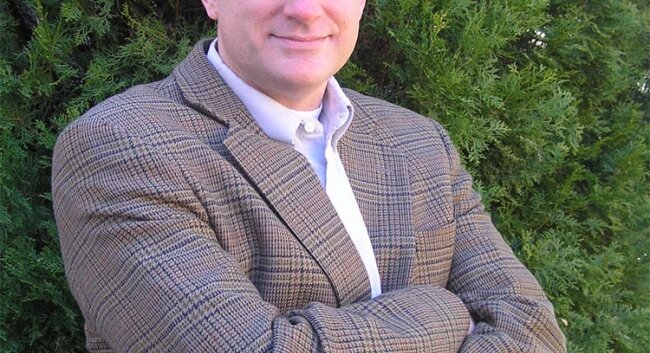In God we trust? John Fea explores America's Christian (?) foundations
Want to pick a fight? Bring up politics or religion. In his new book, Was America Founded as a Christian Nation?, historian John Fea tackles both.
The book explores the heated debate over whether or not America was designed to be Christian and, if so, has it remained that way?
Fea long followed that debate, and during the 1998 presidential election, he saw politics frequently subsume historical facts. He was already interested in how "the past is used to promote present-day agendas and the subject of Christian America seemed to be a good case study," he explains.
Fea's perspective is Christian– he's the chair of Pennsylvania's Messiah College's History Department– so some might anticipate a right-wing polemic. But Fea's work bears out his commitment to historical facts over opinions.
He found few clear-cut answers, and says: "Many of the founding fathers, believed, to one degree or another, in the idea of 'providence' or the notion that the universe is being sustained by an all-powerful God... This, however, did not make them Christians.
"One can believe in a providential God without believing that God took on human flesh, died for the sins of the world, and was resurrected three days later."
While researching notable historical takes on his subject, Fea discovered wildly disparate concepts ranging from the demented to the noble. Certain 19th-century textbooks told children how God's providence laid the groundwork for His new nation by exterminating Native Americans. But Martin Luther King Jr. also proudly proclaimed that his Civil Rights crusade represented the best of the "Judeo-Christian heritage" of America's founders.
"Unfortunately," Fea says, "the history of the American founding has become a political tool. As a result, most people dismiss the complexity of the past to cherry-pick something to meet present-day agendas.
"The Christian Right has made the return to a supposed 'golden age' of Christian America a major part of their platform. The Left has responded with its own interpretation of the founding– one that serves its needs. As a result, history– a discipline that should teach us things like humility, empathy for the views of others, and intellectual hospitality– has become just another battle zone in the culture wars."
To Fea, appreciating American history's complexity and understanding how to think historically about the past, might actually be the antidote to, rather than the cause of, the culture wars.
"If I can get people to think more about the history of the American founding and its relationship to Christianity," he says, "I would be happy."
~
John Fea will appear with authors Barbara Clark Smith and John Ragosta on a panel entitled "Founding Fathers and Religion" at 4pm Friday, March 18, in the City Council Chambers.

3 comments
Messiah College should be thought of as anything but right-wing. The college has continued to get more and more liberal and chooses academics for professors who often don't follow biblical beliefs....which are very secondary. One should not expect a right wing view from a Messiah professor as it would not surprise me in the future if the school ceases to be a Christian college.
When I was writing the article, I didn't intend to imply that Messiah College was right wing and meant no disrespect to it or Mr. Fea (whom I admire). I merely thought that some readers on the left (and even the right) would tend to think that Mr. Fea would discount any arguments against America having been founded a Christian nation simply because he was Christian. He has avoided biases (which I made clear in my article), which is what makes his work so interesting. That comment was meant to dismiss a possible misconception of his work outright. (I didn't, however, cover the issue of the Christian left only because space was at a premium).
I am really looking forward to reading this.